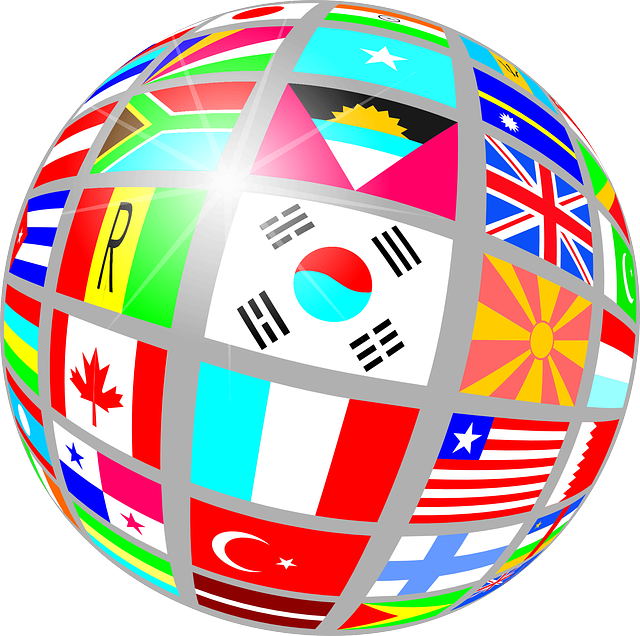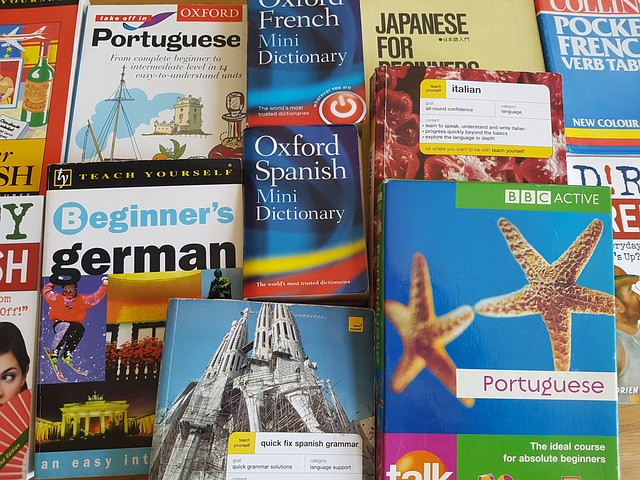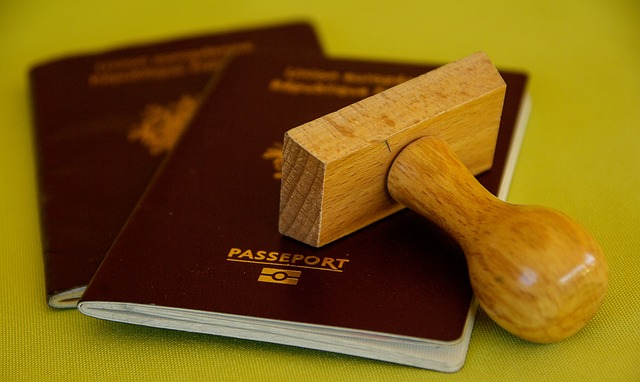Are you tired of living in the same place your whole life? Do you crave adventure, new experiences, and a chance to immerse yourself in different cultures? If so, you might be considering becoming an expat. But how do you even begin to navigate the complex and sometimes overwhelming process of moving abroad?
Fear not, because I’m here to share with you my wealth of experience and knowledge on how to become an expat. From dealing with visa applications to finding a new community, I’ve been there and done that. So grab a cup of coffee and get ready to embark on an exciting journey towards becoming an expat!

Becoming an Expat: Essential Tips and Strategies for Starting Your International Journey
Are you considering becoming an expat and starting your international journey? As an expats and someone who has lived in multiple countries over the past decades, I can assure you that it can be a truly transformative experience. However, it can also be challenging if you don’t have the right mindset and preparation.
1. Research your destination
One of the most important steps in becoming an expat is doing your research on your chosen destination. This includes learning about the culture, the language, the cost of living, and the job market. When I first moved to Japan, I spent three months just researching the country and its customs before making the want to move there. This allowed me to adapt more quickly and avoid culture shock.
2. Connect with locals
Connecting with locals is essential for getting a deeper understanding of the culture and building a support network. I found that joining local clubs and organizations was a great way to meet new people and make friends. When I moved to Spain, I joined a language exchange group where I met locals who helped me improve my Spanish and showed me around the city.
3. Learn the language
Learning the local language is crucial for integrating into a new culture and communicating effectively. Even if you don’t become fluent, learning some basic phrases and expressions can go a long way in making connections and showing respect for the local culture. When I lived in China, I took Mandarin classes and found that even basic language skills helped me navigate daily life more easily.
4. Embrace the culture
Embracing the local culture is key to a successful expat experience. This means being open-minded and willing to adapt to new customs and ways of life. When I first moved to the Middle East, I had to adjust to a slower pace of life and a different sense of time. By embracing these differences, I was able to fully immerse myself in the culture and make the most of my experience.
5. Be patient and flexible
Becoming an expat can be a challenging and sometimes frustrating experience. It’s important to be patient and flexible, especially when things don’t go according to plan. When I moved to Australia, I struggled to find a job in my field and had to be open to new job opportunities too. By being patient and flexible, I was able to find a job that I loved and build a life in a new country.

The Ultimate Guide to Budgeting for Expat Life: How Much Money Do You Really Need?
If you’re considering becoming an expat, one of the most important things to consider is your budget. Moving to a new country can be an exciting adventure, but it can also be expensive. It’s important to have a solid understanding of how much money you’ll need to live comfortably in your new home.
Cost of Living
The first thing to consider when budgeting for expat life is the cost of living in your new location. This will vary widely depending on where you’re moving to. For example, if you’re moving from a developed country to a developing country, you may find that your other living costs and expenses are significantly lower. Conversely, if you’re moving to a major city with a high cost of living, you may need to budget more.
One of the best ever personal experience I had abroad was when I moved from the United States to want to live in Singapore. Although Singapore is a relatively small country, it has a high cost of living due to its status as a financial and commercial hub city. I had to adjust my budget significantly to account for higher housing costs and the overall expense of living in the city.
Housing
Housing is likely to be one of your biggest expenses as an expat. It’s important to research the cost of housing in your new location and factor that into your budget. You’ll also need to consider any upfront costs, such as a security deposit or first month’s rent.
When I moved to Germany one year, for example, I was fortunate to get student visa and find a relatively affordable apartment. However, I had to pay a hefty security deposit upfront, which was unexpected and required some adjustments to my budget.
Transportation
Transportation is another important expense to consider when budgeting for expat life. Will you need to purchase a car or rely on public transportation? If you’re moving to a major city, you may be able to get by without a car. However, if you’re moving to a more rural location, owning a car may be essential.
*One of the best ever personal experience I had was when I lived in Japan for seven years. for long time I didn’t own a car and relied solely on public transportation. While this was convenient and relatively affordable, it did require some adjustments to my budget to account for transit costs.
Food and Entertainment
Finally, it’s important to consider your food and entertainment expenses when budgeting for expat life. Again, this will vary widely depending on your location and lifestyle. If you’re moving to a location with a rich culinary scene, you may want to budget more for dining out. On the other hand, if you’re moving to a location where cooking at home is more common, you may be able to save money by purchasing groceries and cooking your own meals.
When I lived in South Korea, I found that the relatively low cost of dining out was relatively affordable and I was able to enjoy a wide variety of delicious Korean cuisine. However, I also had to account for the very low cost of entertainment, such as going to movies or visiting tourist attractions.
Becoming an Expat in America: Essential Steps and Insider Tips
Becoming an expat in America can be an exciting and daunting experience. From navigating the immigration process to adapting to a new culture, there are many steps to take and challenges to overcome. As someone who has lived in multiple countries and gone through the process of becoming an expat, I have some insider tips and essential steps to help make your transition to living in America as smooth as possible.

Step 1: Research and Planning
Before making the want to move over to America, it’s important to do your research and plan accordingly. This includes researching the visa and immigration process, finding a place to live, and understanding the cost and pros and cons of living in different parts of the country.
Personally, when I moved to America, I spent six months researching the visa process and figuring out which type of work visa would be best for me based on my employment situation. I also researched different neighborhoods in the city I was moving to in order to find a place to work remotely a place to live that fit my budget and lifestyle.
Step 2: Language Learning
If English is not your native language, learning the language is crucial to adapting to life and work visa here in America. While many Americans speak other languages, English is the primary language spoken in business and everyday life in most countries.
My personal experience with language learning when I moved to America four or five years’ back was challenging. As a native Spanish speaker, I struggled with English grammar and pronunciation. However, I found that taking language classes and practicing with native speakers helped me improve my language skills and also allowed me to make new connections and friends.
Step 3: Cultural Adaptation
Adapting to a whole new home country and culture can be one of the biggest challenges of becoming an expat. From social norms to cultural traditions, there are many differences to navigate.
When I moved to America five years back, I had to adapt to new cultural norms, such as tipping at restaurants and understanding the importance of small talk. I also had to adjust to cultural differences in the workplace, such as the importance of punctuality and direct communication.
Step 4: Finding Community
Finding a community of like-minded individuals can be essential to feeling at home in a new country. This can include joining clubs or organizations, attending cultural events, and connecting with other expats.
Personally, I found a community of expats through a language exchange group. This allowed me to practice my English language skills while working remotely while also connecting with other individuals who were going through similar experiences as expats as me.
Understanding US Citizenship for Expats: Navigating the Complexities of Dual Citizenship
Are you considering becoming an expat and navigating the world and complexities of dual citizenship? As a seasoned expat and international real estate and business professional, I have firsthand experience with the challenges and benefits of holding dual citizenship, specifically as a US citizen. In this article, I will share my personal experiences and offer insights into understanding US citizenship for many expats.
What is Dual Citizenship?

Dual citizenship, also known as dual nationality, is when an individual holds citizenship in two or more countries simultaneously. This can happen for a variety of reasons, such as being born to parents from different countries or naturalizing permanent resident in a new country while maintaining citizenship in the original country.
The Benefits of Dual Citizenship
Having dual citizenship in home country can offer a range of benefits, such as the ability to live and work in multiple countries, access to the healthcare system and education in another country, and the ability to vote in both countries’ elections. Additionally, having dual citizenship in another country can provide a sense of connection to one’s heritage and cultural identity.
The Complexities of Dual Citizenship for US Citizens
While having dual citizenship can offer many advantages, it can also come with complexities and challenges, especially for US citizens from abroad. The United States is one of the few other countries in the world that taxes its citizens on their worldwide income, regardless of where they live. This means that US citizens living abroad may be subject to dual taxation, both in their foreign country of residence and in the US.
Additionally, US citizens of countries who hold dual citizenship may be subject to unique legal obligations, such as registering for the Selective Service System and obtaining a US visa or passport to both enter the country and leave the country.
Navigating the Complexities of US Citizenship for Expats
For those considering becoming an expat permanent residency and holding dual citizenship, it’s important to seek out professional advice and guidance to navigate the complexities of a permanent resident and US citizenship. This can include consulting with a tax professional who specializes in real estate and international taxation, as well as working with an immigration attorney to understand the legal obligations and requirements for a permanent resident and holding dual citizenship.
Additionally, it’s important to make sure you stay up-to-date on any changes to US tax and immigration laws that may impact dual citizens. This can include changes to tax rates, reporting requirements, and work visa and regulations.
My Personal Experience
As a US citizen who has lived and worked in multiple countries over the past few decades, I have firsthand experience with the complexities and benefits of holding dual citizenship. While navigating the tax, visa, and legal obligations of dual citizenship can be challenging, it has also provided me and many people with the freedom and flexibility to live and work in different cities and parts of the around the world.
One of the most important lessons I’ve learned is the importance of staying informed and seeking out professional advice. By working with tax professionals and immigration attorneys, I’ve been able to navigate the complexities of US citizenship and enjoy the many benefits of holding dual citizenship.

In conclusion, becoming an expat is a life-changing decision that requires careful planning, preparation, and a willingness to adapt to a new culture. Whether you are looking to move, seeking adventure, new career opportunities, or a change of scenery, the expat lifestyle can be both rewarding and challenging. By following the tips and advice outlined in this article, you can increase your chances of success and make the most of your expat experience. Remember, being an expat is not just about living abroad, it’s about embracing new perspectives, making meaningful connections, and creating memories that will last a lifetime.
Originally posted 2023-10-13 14:45:00.